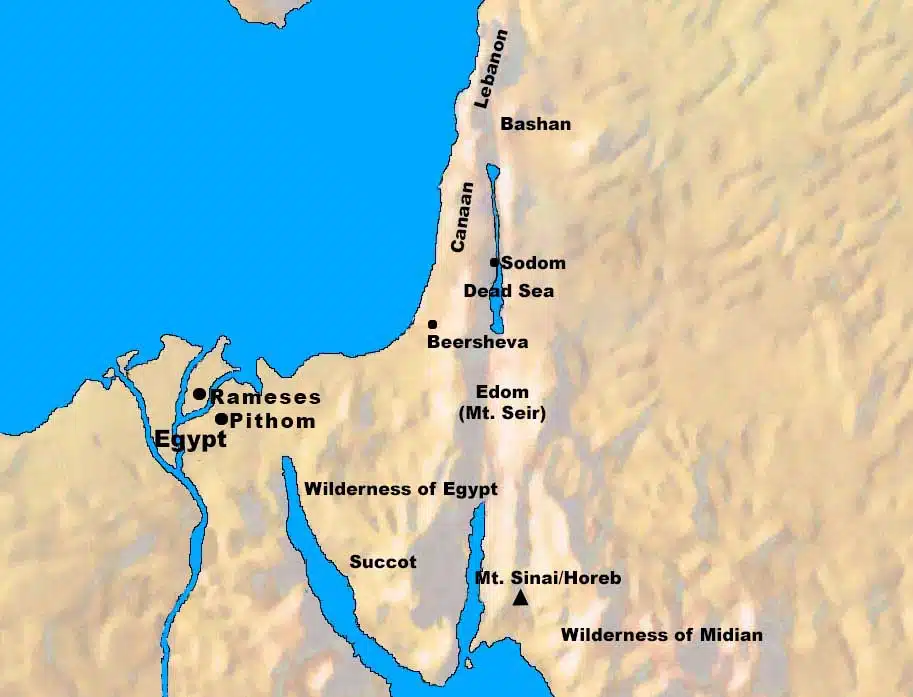In his first objection, Moses asks “Who am I?” His second objection asks God, “Who are you?” Moses wants to be prepared if (and when) confronted by the Israelites concerning where he gets the authority to tell them what to do.
Verse 13 begins Moses’ second objection, using the attention-getting word Behold to start. Moses seems to be apprehensive about whom he is representing. He also realizes that he is going to the sons of Israel, who rejected his leadership forty years ago, and now he is to approach them and say to them, ‘The God of your fathers has sent me to you.’ Moses is expecting the Israelites to be suspicious of him and of his motives for wanting to be their leader. He needs God’s advice when they may say to me, ‘What is His name?’ What shall I say to them?”
Moses is anticipating that the Israelites will confront him about his notion of who the “God of your fathers” is. God provides two answers to the question (14, 15). The first answer is in verse 14 when God said to Moses I AM WHO I AM.
Though some scholars prefer to translate the phrase in the future tense (“I will be who I will be”), it seems best to leave it in the present tense. It conveys His continuing presence with His people; He is not limited or bound by time, space, and history. The name also implies that He is separate from His creation and is not dependent upon it. Such a God can fulfill the covenant He made to His people, and indeed He will fulfill it.
God continues His first answer by telling Moses Thus you shall say to the sons of Israel, ‘I AM has sent me to you.’” I AM is probably a word-play on the name Yahweh (translated LORD) given in the next verse. It speaks of His continuing existence (as opposed to the gods of Egypt). It is also significant because it is the covenant-relationship name of the Creator. I AM has a covenant relationship with His chosen people.
Biblical Text
13 Then Moses said to God, “Behold, I am going to the sons of Israel, and I will say to them, ‘The God of your fathers has sent me to you.’ Now they may say to me, ‘What is His name?’ What shall I say to them?”14 God said to Moses, “I AM WHO I AM”; and He said, “Thus you shall say to the sons of Israel, ‘I AM has sent me to you.’”
Check out our other commentaries:
-
Exodus 22:16-24 meaning
This passage deals with the consequences for someone living a life disloyal to the covenant. The LORD prohibits the abuse of society’s vulnerable—strangers, widows, and...... -
Deuteronomy 32:19-22 meaning
The Suzerain (Ruler) God says He will reject His chosen people because they have abandoned Him....... -
Matthew 25:1-13 meaning
Jesus tells an extended parable about the kingdom of heaven and His return, likening them to a bridegroom coming for His bride late at night....... -
Matthew 20:17-19 meaning
As Jesus and His disciples are about to go to Jerusalem, He pulls them aside to remind them about His arrest, trial, crucifixion, and resurrection...... -
Romans 2:22-24 meaning
The hypocrisy of those who teach the law, but do not follow it themselves, not only dishonors God, but it also harms the witness of......



